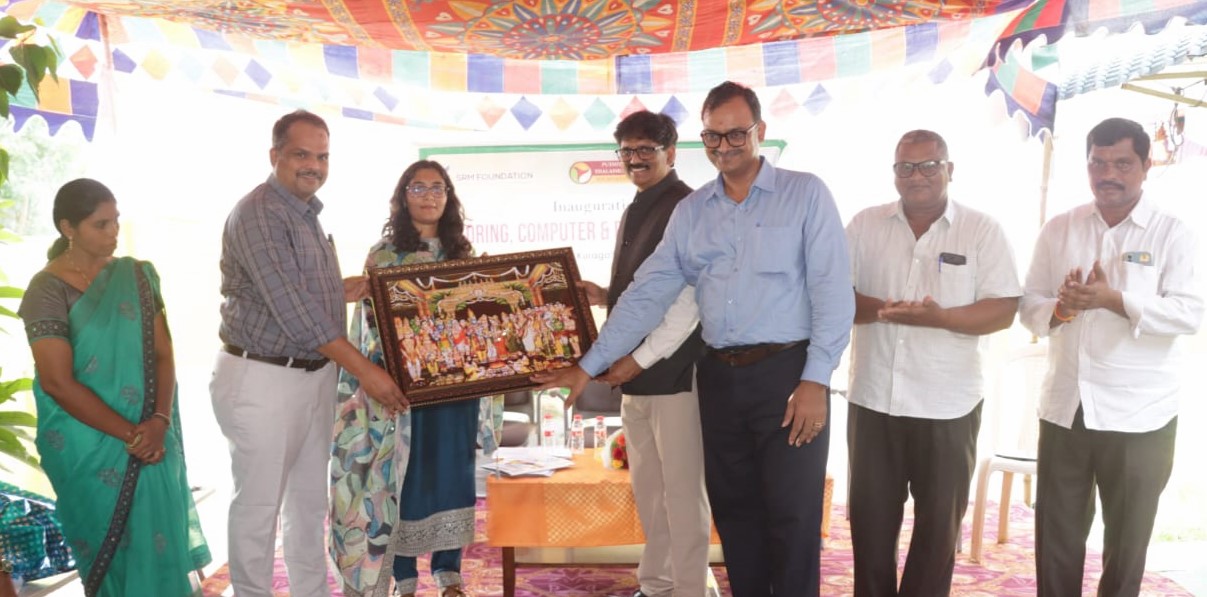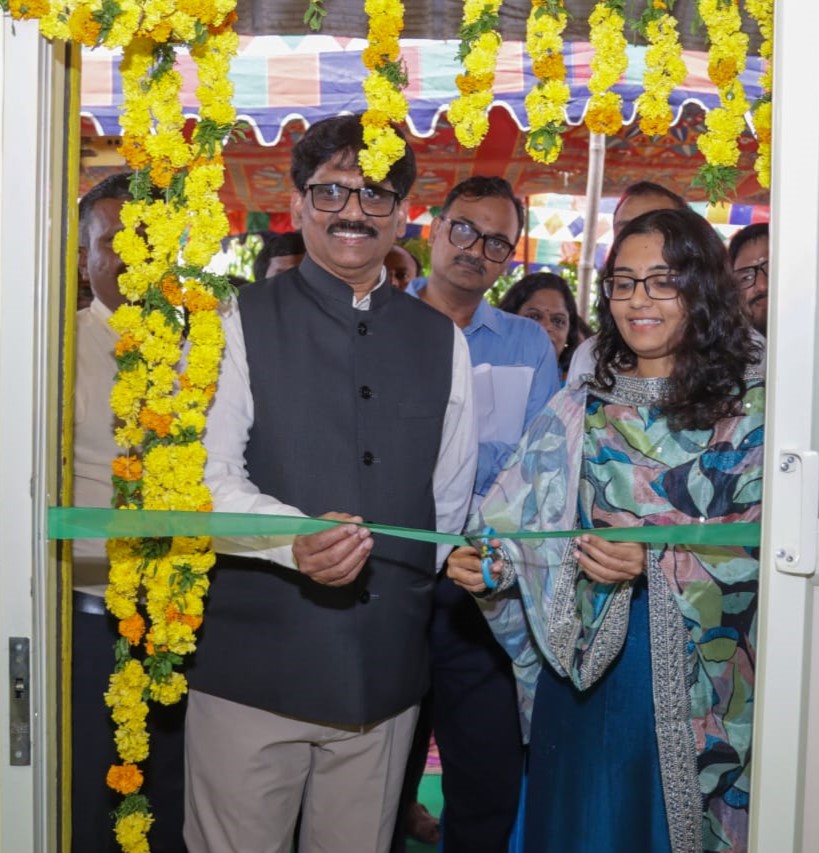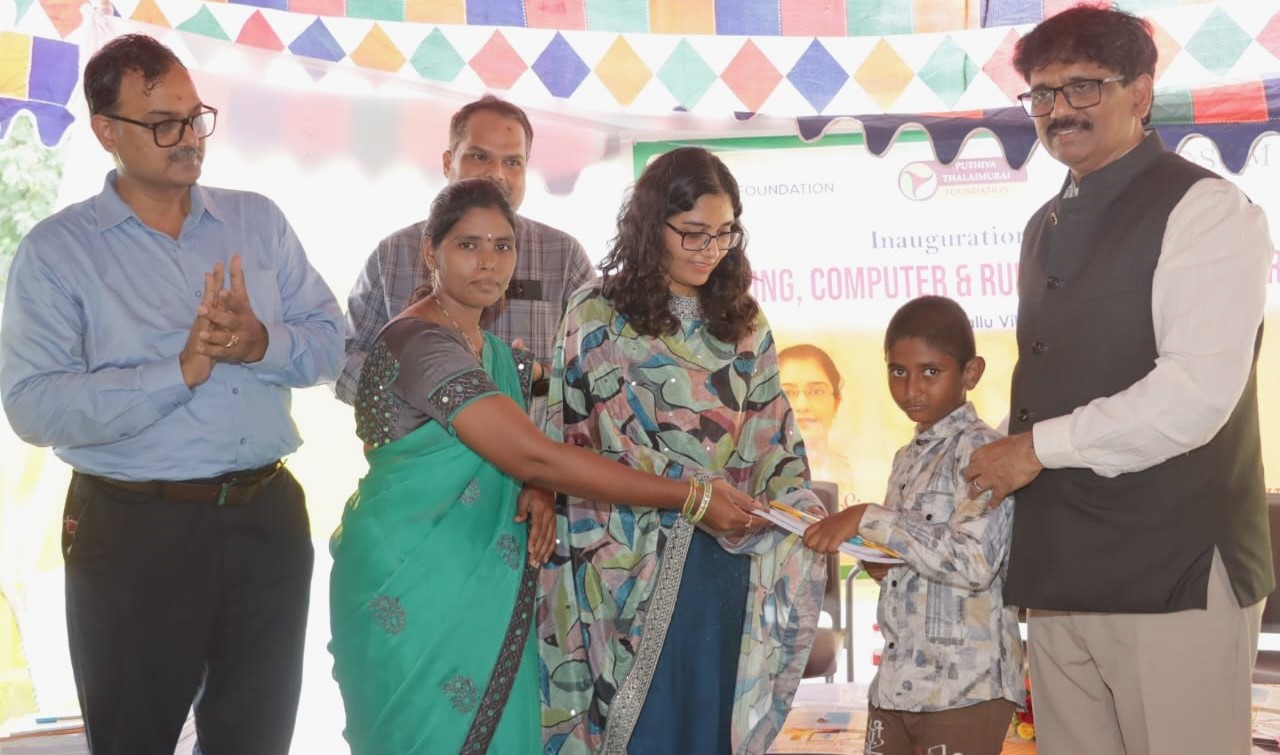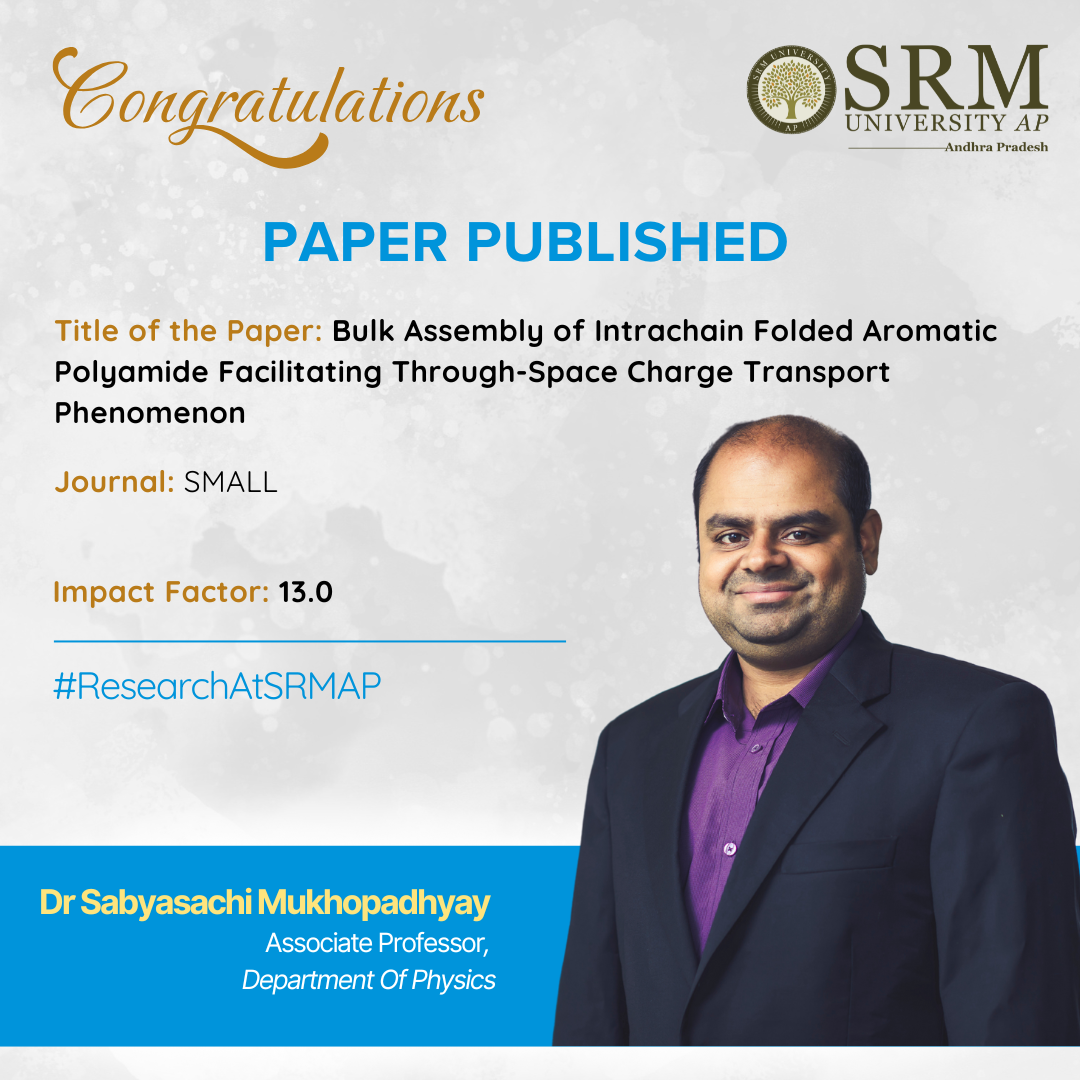- Free Vocational Training Centres by SRM Foundation inaugurated at Kuragallu June 5, 2025
 In a significant step towards empowering rural women through education and skill development, multiple free training centres were established in Kuragallu village on Wednesday, under the auspices of the SRM Foundation and Tenali Sub-Collector, Sanjana Sinha inaugurated these centres.
In a significant step towards empowering rural women through education and skill development, multiple free training centres were established in Kuragallu village on Wednesday, under the auspices of the SRM Foundation and Tenali Sub-Collector, Sanjana Sinha inaugurated these centres.The newly launched centres offer free training in computer skills, tailoring, and academic support through tuition classes. These centres aim to promote self-employment and digital literacy among women and students in the region.
Sub-Collector, Sanjana Sinha, and SRM University- AP, Amaravati’s Pro-Vice Chancellor, Prof. Satish Kumar, formally opened the facilities and interacted with women beneficiaries at the site. Speaking at the inauguration, Sub-Collector Sinha lauded the SRM Foundation’s initiative, stating, “SRM-AP, being the largest educational institution in Amaravati, is igniting the flame of knowledge for thousands, and I am pleased to see such esteemed organisations stepping forward to serve rural communities free of cost.”

She added that basic computer literacy is essential in today’s digital world, and this training will be a game-changer for many. She urged residents to take full advantage of the expert-led training programs in their village.
SRM-AP’s, Pro-Vice Chancellor, Prof. Satish Kumar, highlighted the Foundation’s mission to foster economic independence among rural women. “Our tailoring and computer training programs are designed to equip women with skills that lead to self-employment and sustainable livelihoods. Education remains the pathway to greater success,” he said.
SRM Foundation Secretary D V Venkatagiri emphasised that these free services are already operational in Chennai, Amaravati, and Delhi, with three centres launched in the Amaravati region and plans for further expansion.
In a gesture of appreciation, villagers felicitated Pro-Vice Chancellor Prof. Satish Kumar and Foundation Director Dr Venkatagiri for their contributions. Additionally, Sub-Collector Sinha honoured SRM Tuition Centre educators Prathipati Sushma, Punyavani Konduru Bharathi Prameela, and Dhana Kumari, presenting them with shawls in recognition of their service. As part of the launch event, books, school bags, and stationery were distributed to students attending the tuition centres.
Continue reading →
- BTech CSE Career Options: Career Guide for Your Future in Technology June 4, 2025
- The Invisible Hand of AI — How Generative Models Shape Our Daily Decisions June 2, 2025
- Rethinking Business Analytics Education for the Next Generation of Decision-Makers June 2, 2025
- Folded Aromatic Polyamides Enabling Faster Charge Transport June 2, 2025
 In the quest for next-generation organic electronic materials, researchers have drawn inspiration from nature’s intricate designs. A groundbreaking study titled “Bulk Assembly of Intrachain Folded Aromatic Polyamides Facilitating Through-Space Charge Transport Phenomenon” led by Dr Sabyasachi Mukhopadhyay, Associate Professor in the Department of Physics, introduces a novel class of polymers that mimic the secondary structures of biomolecules. Published in the high-impact Q1 journal SMALL with an Impact Factor of 13.0, this research unveils the potential of intrachain folded aromatic polyamides in facilitating efficient through-space charge transport.
In the quest for next-generation organic electronic materials, researchers have drawn inspiration from nature’s intricate designs. A groundbreaking study titled “Bulk Assembly of Intrachain Folded Aromatic Polyamides Facilitating Through-Space Charge Transport Phenomenon” led by Dr Sabyasachi Mukhopadhyay, Associate Professor in the Department of Physics, introduces a novel class of polymers that mimic the secondary structures of biomolecules. Published in the high-impact Q1 journal SMALL with an Impact Factor of 13.0, this research unveils the potential of intrachain folded aromatic polyamides in facilitating efficient through-space charge transport.Abstract :
This study presents the design and synthesis of periodically grafted aromatic Polyamides capable of intrachain folding, mimicking secondary structures seen in biomolecules. Leveraging the immiscibility between aromatic backbones and Polyethylene glycol (PEG) side chains, the polymers self-assemble into lamellar, phase-separated domains with ordered π-stacking.The structural order is further enhanced by incorporating aromatic guest molecules, enabling efficient through-space charge transport. Structural and morphological investigations via SAXS, WAXS, AFM, and TEM confirm the formation of highly ordered π-domains. Charge transport measurements reveal vertical current densities as high as 10⁻⁴ A/cm² in annealed host–guest complexes, comparable to conventional conjugated polymers, demonstrating the potential of these materials for stable, anisotropic organic electronics.
Practical implementation :
This research provides a new strategy for designing flexible, stable, and efficient organic electronic materials without the need for traditional conjugated polymers. The ability to precisely control the orientation and spacing of conductive regions at
The nanoscale opens doors for:
- Wearable and stretchable electronics
- Flexible sensors and low-power devices
- Organic transistors and memory devices with tunable directionality
- Environmentally stable devices, useful in humid or high-temperature conditions
- These innovations can lower manufacturing costs, enhance sustainability, and enable novel applications in healthcare, IoT, and smart textiles.
This research was a collaborative effort between multiple departments and institutions including Department of Chemical Sciences, IISER Mohali, Department of Physical Sciences, IISER Mohali and Department of Physics, SRM University – AP (Ramkumar K, Dr Sabyasachi Mukhopadhyay) and was supported by Department of Science and Technology – Science and Engineering Research Board (DST-SERB)
Future research plans:
Dr Sabyasachi Mukhopadhyay is working towards “Integrated Center for Organic Electronics” – a multidisciplinary innovation hub focused on designing the next generation of flexible, sustainable, and high-performance electronic materials and devices.
Continue reading →



